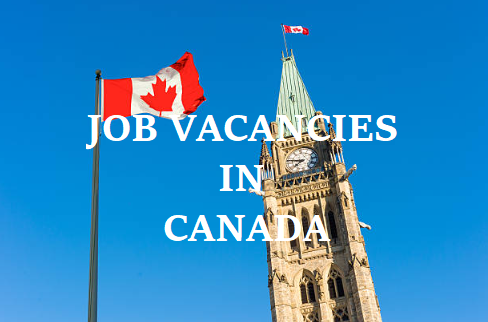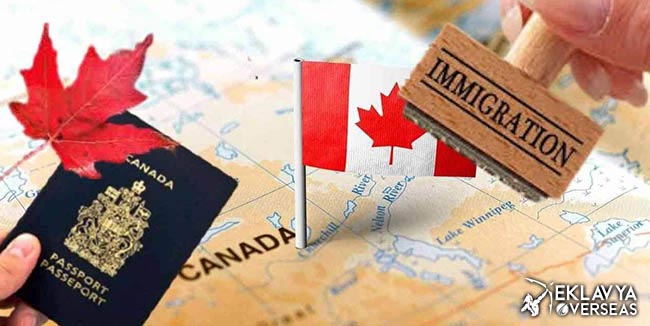$50,000 Construction Jobs in the UK with Visa Sponsorship
The UK remains one of the most attractive destinations for Africans searching for better work opportunities, higher salaries, and a chance at permanent settlement. Among the many opportunities available, $50,000 construction jobs in the UK with visa sponsorship stand out as one of the most life-changing.
Imagine earning $50,000 (about £40,000) annually — a salary that not only takes care of your needs in the UK but also allows you to send money back home, invest in businesses, buy property, or support your family’s education. For many Africans, this isn’t just a job; it’s a gateway to transforming lives.
This guide is your complete handbook: from industry insights, application requirements, benefits, and visa details, to practical tips for Africans aiming to relocate through this path.
The Construction Industry in the UK: A Growing Opportunity
Why Construction Is Booming?
Construction is one of the UK’s largest sectors, accounting for nearly 7% of the nation’s GDP. Every year, new infrastructure projects, roads, rail networks, housing estates, commercial buildings, and public sector facilities are planned and built.
Brexit and the pandemic reduced the pool of European workers in the construction industry, and as a result, there’s now a strong demand for foreign workers. The UK government has responded by adding several construction roles to its shortage occupation list. This list is critical because it means employers can hire foreign workers more easily under the work permit system.
Types of Construction Roles Available
Construction isn’t just about bricklaying. It’s a diverse industry with jobs for both skilled and unskilled workers:
- Skilled Roles: Civil engineers, surveyors, project managers, electricians, welders, crane operators, architects, and quantity surveyors.
- Semi-Skilled Roles: Machine operators, scaffolding experts, painters, tilers, plumbers, and steel fixers.
- Unskilled Roles: General labourers, cleaners, site helpers, and packers.
Regardless of your background, there is a place for you. Africans who may not have formal education but are willing to work hard can still secure jobs with visa sponsorship.
Read also: Top Budget-Friendly Temporary Housing Options for Immigrants in the UK
Salary Breakdown: Understanding the $55,000 Offer
A salary of $55,000 per year translates to roughly £3,600 per month before tax. After standard tax and national insurance contributions, you may take home about £2,600–£2,800 monthly, depending on your circumstances.
Here’s what that means for Africans:
- You can live comfortably outside of London (cheaper cities like Birmingham, Leeds, or Manchester).
- You can save about £1,000 monthly if you manage your spending wisely.
- With savings of £12,000 annually, you could build property, start a business, or support relatives back home.
What Is Visa Sponsorship and Why Is It Important?
Visa sponsorship means your UK employer legally supports your visa application by offering you a job and issuing a Certificate of Sponsorship (CoS). Without this, you cannot apply for a Skilled Worker Visa.
Why Employers Provide Sponsorship
The UK construction industry cannot meet labour demand with its domestic workforce alone. Employers need more hands, and sponsoring workers from abroad fills the gap. Sponsorship also ensures workers are tied to the company for a set period, reducing staff shortages.
Types of Work Visas Available for Construction Jobs
- Skilled Worker Visa – The Most common pathway for construction workers. It allows you to live and work in the UK for up to 5 years, with the possibility of renewal.
- Temporary Worker Visa (T5) – For short-term contracts, usually 6–12 months.
- Graduate Visa – If you studied in the UK and want to switch into construction.
👉 Check the UK Government Skilled Worker Visa Page for official guidance.
Benefits of UK Construction Jobs with Visa Sponsorship
- Attractive Salary – Earning $55,000 per year is a huge improvement for most African workers compared to wages at home.
- Pathway to Permanent Residency – After 5 years, you can apply for Indefinite Leave to Remain (ILR), the step before UK citizenship.
- Health Insurance – Access to the NHS system ensures your health and safety are covered.
- Family Relocation – You can sponsor your spouse and children, giving them access to UK education and healthcare.
- Training Opportunities – Employers often provide on-the-job training, upgrading your skills.
- Cultural Diversity – The UK has large African communities in cities like London, Birmingham, and Manchester.
Read also: Top 15 Companies in the UK That Sponsor UK Work Visas
Requirements for Construction Jobs UK Visa Sponsorship
Before you apply, it’s important to understand the requirements set by both employers and the UK Home Office. While these differ for skilled and unskilled roles, some basics apply to everyone.
General Requirements
- Valid International Passport – Must have at least 6 months’ validity.
- Job Offer from a Licensed Employer – Only companies approved by the UK Home Office can sponsor you.
- Certificate of Sponsorship (CoS) – Issued by your employer; this document proves your job is genuine.
- English Language Requirement – For most skilled roles, you may need to prove English proficiency through IELTS or a degree taught in English.
- Proof of Funds – In some cases, you must show you can support yourself (unless your employer confirms they’ll cover your first month).
- Criminal Record Certificate – For specific roles, especially if working on public projects.
Requirements for Skilled Workers
- Diploma, trade certification, or university degree.
- Evidence of work experience.
- Specific technical qualifications (e.g., electrician’s licence, welding certificate).
Requirements for Unskilled Workers
- No formal education required.
- Physical strength, willingness to learn, and reliability.
- Basic communication skills in English.
Documents Needed to Apply
You’ll need both personal and employment-related documents. Here’s a checklist:
- International passport (bio-data page).
- Passport photographs.
- Updated Curriculum Vitae (CV).
- Academic and professional certificates.
- Work experience reference letters.
- Proof of English language ability.
- Police clearance certificate.
- Bank statement (if required for proof of funds).
- Certificate of Sponsorship (CoS).
Tip: Keep both soft copies (PDF scans) and hard copies ready.
The Application Process: Step by Step
Step 1: Search for Jobs
Look for vacancies on reputable platforms like:
- Indeed UK
- Reed.co.uk
- LinkedIn Jobs
- Total Jobs
Focus on companies that clearly mention visa sponsorship.
Step 2: Apply and Secure a Job Offer
Tailor your CV to highlight relevant experience. For unskilled roles, emphasize your physical stamina and willingness to work. For skilled roles, list technical skills and certifications.
Step 3: Receive Your Certificate of Sponsorship
Once hired, your employer issues a CoS. This is a unique reference number you’ll need for your visa application.
Step 4: Apply for the Skilled Worker Visa
- Fill out the online form on the UK Visa and Immigration Website.
- Pay the visa fee (varies by duration and dependents).
- Pay the Immigration Health Surcharge (IHS) for access to the NHS.
- Book and attend a biometrics appointment at a visa application centre in your country.
Step 5: Wait for a Decision
The processing time is usually 3–8 weeks, depending on your country. You’ll receive a vignette (sticker) in your passport if approved.
Read also: How to Apply for Travel Loan and Grant to Relocate To The UK
How an Immigration Lawyer Can Help
When to Consider an Immigration Lawyer
- If your previous visa applications were refused.
- If your documents are incomplete or complex.
- If you’re bringing dependents and want to ensure all applications are correct.
Benefits of Using an Immigration Lawyer
- Expert Guidance – They understand UK visa rules inside out.
- Error-Free Applications – Mistakes delay approvals; lawyers help avoid this.
- Legal Representation – If issues arise, they can represent you before the Home Office.
- Peace of Mind – Having a professional handle your case reduces stress.
While hiring a lawyer costs money, it could save you time and prevent costly rejections.
Additional Considerations: Work Permit & Health Insurance
Work Permit Validity
Most Skilled Worker visas are issued for 3–5 years. You can extend it if your employer renews your contract.
Health Insurance
Your Immigration Health Surcharge (IHS) gives you access to NHS services. This includes:
- GP (doctor) visits.
- Emergency care.
- Maternity services.
- Prescriptions at discounted rates.
This is a huge benefit compared to private health costs.
Life in the UK as a Construction Worker
Relocating for a job is not just about work — it’s about starting a new life in a new country. Understanding what to expect helps you prepare emotionally and financially.
Cost of Living vs. Salary
Earning $50,000 annually (around £40,000) sounds attractive, but how does it balance against the cost of living?
- Housing: Rent varies widely. In London, a one-bedroom apartment could cost £1,500 per month. In smaller cities like Birmingham or Leeds, you might pay £700–£900.
- Transport: Monthly public transport passes average £150–£200.
- Food & Groceries: Expect to spend £250–£400 monthly per person.
- Utilities & Internet: Around £200–£250 monthly.
With smart budgeting, you can live comfortably and still save £800–£1,000 monthly.
Housing Options for Sponsored Workers
Employers often provide temporary housing or allowances for new arrivals. Many construction companies offer shared accommodation, especially for unskilled workers. Skilled workers may receive housing stipends to rent privately.
👉 Tip: Use platforms like SpareRoom or Zoopla to compare rental costs across UK cities.
Healthcare and Health Insurance
Thanks to the Immigration Health Surcharge (IHS) you pay during your visa process, you get access to the UK’s National Health Service (NHS). This covers:
- GP visits.
- Emergency hospital care.
- Surgery if required.
- Maternity care for pregnant women.
Prescription medication is subsidised, so you only pay a standard fee per item. This makes the healthcare system a big relief for African migrants who might otherwise struggle with high private healthcare costs.
Understanding the Credit Score System in the UK
A credit score plays a major role in your financial stability in the UK. It affects your ability to:
- Rent certain houses.
- Get mobile phone contracts.
- Secure loans, mortgages, or even car finance.
New arrivals often start with no credit history. To build your credit score:
- Open a UK bank account.
- Pay all bills on time (electricity, gas, internet).
- Use a credit card wisely (spend and repay quickly).
- Register on the electoral roll (if eligible).
Good credit management opens the door to better financial opportunities.
Cultural Adjustment and Diversity
Language and Communication
Africans often find British English easier than American English because many countries already follow the British system. However, accents differ — from London’s Cockney to Scotland’s brogue — so patience and practice are key.
Cultural Differences
- Timekeeping: Punctuality is vital. Arriving late can affect your reputation at work.
- Workplace Etiquette: Employers value politeness, teamwork, and adherence to safety rules.
- Food: While spicy Nigerian or Ghanaian dishes may not be common in restaurants, African shops and markets are available in most cities.
Read also: A Step-by-Step Guide to Getting Your Dream Job in the UK
Challenges You Might Face
1. Weather Conditions
The UK is known for cold winters and unpredictable rain. For Africans used to hot climates, adapting can be tough. Warm jackets, boots, and layering clothes are essential.
2. Loneliness
Leaving family behind is emotionally challenging. Thankfully, there are strong African communities and churches in major cities that provide support and friendship.
3. Job Insecurity
Construction projects have timelines. If one project ends, you may need to move to another city for work. Having a work permit tied to a sponsor means you must quickly find a new job if you lose your current one.
4. Financial Mismanagement
Many migrants get carried away with credit cards, loans, or sending too much money home. Without discipline, your credit score could suffer, and your dream of permanent residency may be delayed.
Success Stories: Africans in UK Construction
Chinedu’s Story (Nigeria)
Chinedu moved to Birmingham as a site labourer. Within 3 years, he was promoted to site supervisor, earning even more. Today, he’s applying for permanent residency, and he has already bought land back home in Enugu.
Amina’s Story (Ghana)
Amina, a trained electrician, secured a sponsored job in Manchester. At first, she struggled with the cold and cultural differences, but within 5 years, she earned Indefinite Leave to Remain (ILR). She now mentors new African workers arriving in her city.
Samuel’s Story (Kenya)
Samuel took a job as a general labourer in London. Though rent was high, he moved to Luton (a smaller town nearby) and saved more. After 4 years, he qualified for a training course sponsored by his employer, and now he’s a crane operator earning £55,000+.
These stories show that with resilience and planning, Africans can thrive under the construction jobs UK visa sponsorship route.
Balancing Work and Family Life
For workers who bring their families, adjustment takes time. Children may adapt faster to UK schools and culture, while spouses may need support networks. Thankfully, most African churches and cultural associations provide guidance.
Future Opportunities in the UK Construction Sector
The UK government continues to invest heavily in infrastructure. With projects such as HS2 (the high-speed rail network), large housing developments, and renewable energy plants, the demand for workers will remain strong for years to come.
For Africans seeking construction jobs with UK visa sponsorship, this means more opportunities not only to earn a living but also to grow careers in specialised areas like project management, sustainable construction, and digital engineering.
Growth Areas in the Industry
- Green Construction – Demand for eco-friendly buildings is rising. Skilled workers with knowledge of sustainable methods will be highly sought after.
- Technology Integration – Use of drones, AI, and digital modelling in construction is increasing, creating new roles for tech-savvy workers.
- Large-Scale Public Projects – Roads, bridges, hospitals, and schools will always need builders, plumbers, electricians, and engineers.
For Africans, this means long-term job security if you’re willing to upgrade skills and adapt.
Pathway to Permanent Residency and Citizenship
One of the greatest benefits of visa sponsorship is that it sets you on a clear journey to permanent residency in the UK.
Step 1: Skilled Worker Visa
Issued for 3–5 years, renewable if you stay employed with a sponsoring company.
Step 2: Indefinite Leave to Remain (ILR)
After 5 years of continuous residence, you can apply for ILR. This gives you permanent residency rights, meaning you can live and work without visa restrictions.
Step 3: UK Citizenship
After holding ILR for 1 year, you may apply for British citizenship. This grants you a UK passport, full voting rights, and the ability to sponsor relatives more easily.
👉 Many Africans have successfully transitioned from construction jobs and UK visa sponsorship into full citizenship, proving this pathway is a life-changing opportunity.
Common Mistakes to Avoid
- Falsifying Documents – UK immigration is very strict. Fake certificates or reference letters will result in permanent bans.
- Ignoring Credit Score – Poor financial discipline can affect your ability to rent or get loans.
- Not Renewing Visa on Time – Always track expiry dates for your work permit.
- Neglecting Health Insurance Payments – Pay the Immigration Health Surcharge (IHS) to avoid medical costs.
- Over-reliance on Overtime – Many workers burn out by taking on too many hours. Balance is important.
Frequently Asked Questions (FAQs)
1. Can I apply without experience?
Yes. For unskilled labour roles, experience is not always required. Many employers provide training.
2. Will my employer cover flight tickets?
Some do, but not all. Read your contract carefully.
3. Can I switch jobs once in the UK?
Yes, but only to another licensed sponsor. You’ll need a new Certificate of Sponsorship.
4. Can I bring my spouse and children?
Yes. Dependents can apply with you under the Skilled Worker Visa route.
5. What happens if I lose my job?
You’ll usually have 60 days to find another sponsor or leave the UK.
6. Do I need an immigration lawyer?
Not always. But an immigration lawyer is useful if your case is complex or if you’re applying with dependents.
7. How soon can I apply for permanent residency?
After 5 years of continuous residence under a valid work permit.
Final Thoughts: Why This Matters for Africans
$50,000 construction jobs in the UK with visa sponsorship are more than just jobs — they are bridges to a better life.
- You get a work permit and a steady salary.
- You secure health insurance under the NHS.
- You can eventually apply for permanent residency and even citizenship.
- Your family can benefit from education, healthcare, and exposure to global opportunities.
For many Africans, this pathway has already transformed lives. From sending remittances home to investing in businesses and buying property, these opportunities are changing the future of entire families.
So if you’re ready to take the leap, start by searching for licensed sponsors, preparing your documents, and applying strategically. Your dream of building a better life in the UK could begin with one simple application.






